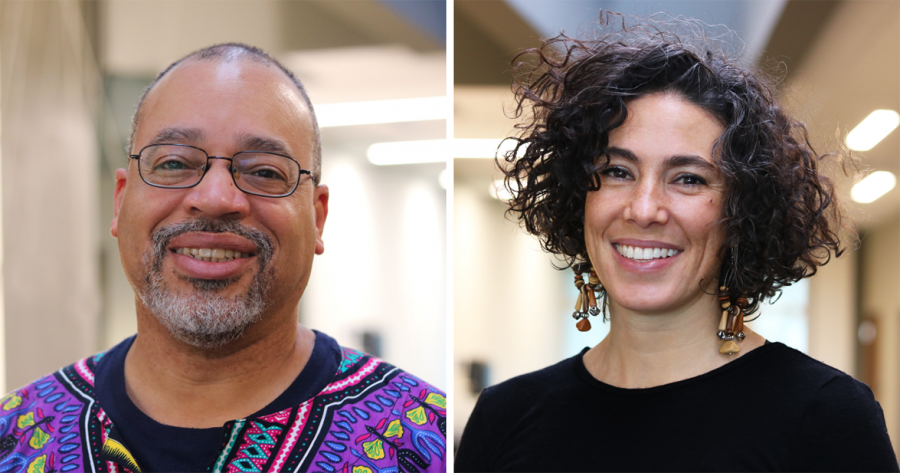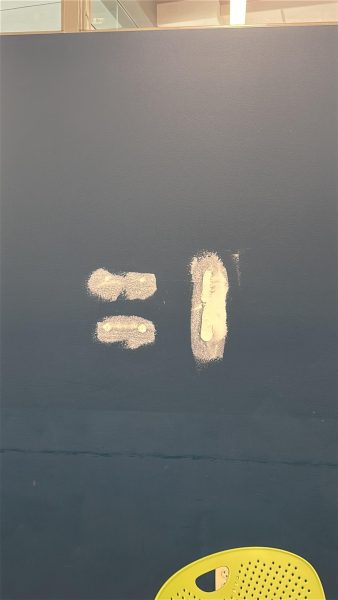Moravian’s New Deans of Diversity
Looking to create a more inclusive community, Moravian recently announced that it had hired Dr. Nick Creary and Dr. Daisy Purdy to serve as the College’s new deans of diversity.
Creary is now associate professor and associate provost of Academic Inclusion and Innovation at the College, and Purdy is associate provost of Community, Equity, and Engagement. Purdy will also be joining the faculty as an assistant professor.
Both of the new provosts have a lot of experience working on similar endeavors at other college campuses around the country.
When aiming to create an inclusive campus environment, “the first step is finding out what people know, what they think they know, and what they want to know,” said Purdy. She also stressed the significance of meeting students where they already are.
One approach to achieve this is to make the topics of diversity, equity, and inclusion relevant to students’ career trajectories. By addressing these issues on a more personal scale, students are more inclined to be open, attentive, and willing to learn from one another, she said.
Currently, Creary and Purdy are working on creating designated areas where students can have open discussions in a safe environment. Such “safe spaces” can help campus members from underrepresented communities in particular embrace their identities and learn from one another.
When asked about the strategies that make a campus environment inclusive and welcoming, Purdy said student life and academic affairs need to work together for the best interests of students. “A positive learning environment is one that incorporates accommodation to identities by opening doors and providing the necessary resources in order to do so.”
She also emphasized the importance of being honest and up front about where Moravian currently stands when it comes to inclusivity and of having a clear vision of where the College would like to go.
Creary stressed the importance of having significant policy changes.
“We must have policies in place to protect those students so that they are not being subjected to hateful conduct,” he said. “[And] there must be accountability for those who choose to engage in it.” Such policies should be articulated in the faculty handbook, the student handbook, and general education and curricular materials.
In recalling his work at the University of Iowa, Creary mentioned a career event where employers met with undergraduate students. He and others came up with the idea of providing a similar opportunity to graduate students.
One of those students “came up to me with tears in her eyes and said, ‘I never thought it was possible for me to go to grad school,” Creary said. “I may not have gotten everything done and done it well, but I made an impact on that student’s life.”
When not in the Diversity, Equity, and Inclusion (DEI) House, Purdy can be found in the classroom, teaching courses on world news and the ethic behind the power of politics. With her interdisciplinary background, she hopes her courses benefit the entire college community.
One program she and Creary would like to offer is an orientation for incoming students, specifically those of color, first generation, and from other marginalized groups.
“Transitioning to college can be difficult for these students,” Creary said, and he and Purdy want to bring them together before classes start, so they “build social networks” and hit the ground running.








carol moeller • Mar 31, 2021 at 4:26 pm
Thanks for this great introduction to our new Associate Provosts of DEI. Thanks, Elizabeth Schwartz, TahLea Wright, and welcome, Dr Daisy Purdy, and Dr Nick Creary! As Dr McClelland said in her comment, this is an exciting time to be at Moravian, as we work to build toward a Moravian in which everyone can flourish!
Sara McClelland • Mar 20, 2021 at 2:54 pm
Great article and introduction to our new deans of diversity. It’s an exciting time to be at Moravian. Good work Elizabeth and TahLea, keep it up! (Also, welcome to out new deans!!)